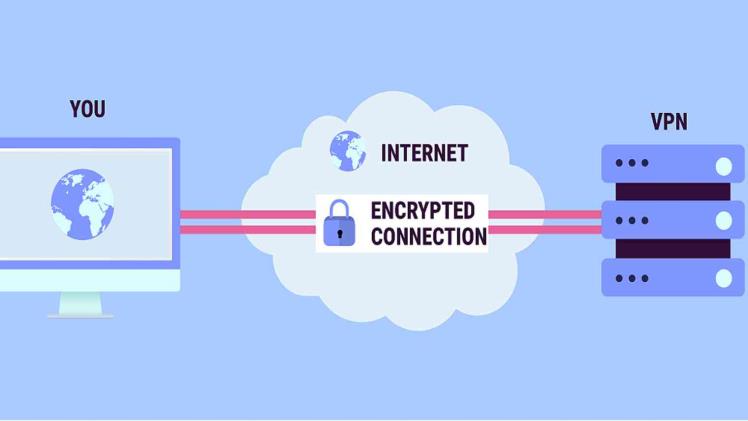VPN stands for Virtual Private Network. But what is a virtual private network? It is some kind of encrypted network or connection. Encryption is one of the keys to security in the cyber world. The cyber world can be likened to a wilderness with many animals in it, ranging from friendly and harmless animals to those who prey for life. With regards to the internet, you can’t be sure everything is safe unless you prepare for the worst, one of which is an encrypted data connection that prevents unauthorized people from peeking at data that is transmitted from the internet network to your device. And vice versa!
For serious internet users, using a VPN is a necessity, especially for companies with many employees working remotely. You don’t want heavy data traffic to and from your employees’ devices to be intercepted.
How do VPNs work?
Basically, a VPN moves data traffic down an encrypted channel so data traffic is private. No one is able to intercept the data that is transmitted in the VPN channel. Of course, if the channel is used properly.
Technology capable of authentication
In general, VPN services can authenticate every user (or device) involved. Its function is to ensure that each user meets certain requirements to receive and send data remotely.
Encryption is key
Encryption is key because it guarantees the secrecy of anything that passes through the data tunnel. What is encryption? It is a kind of process of changing (converting) data into a kind of secret code. Thus the data can be disguised while passing through the data tunnel before being recovered with what is commonly called a “decryption key”. As long as the data in the form of a message is displayed as a secret code, it is called “ciphertext”, whereas after it is recovered it is called “plaintext”.
The encryption process ensures that those who try to snoop around the network find nothing but secret codes they can’t understand. In every situation involving the transfer of personal data, the encryption process is mandatory. Otherwise, the data will be tunneled unprotected allowing anyone who is advanced enough to enter their data tunnel to read them easily. Imagine if that happened to data such as bank account numbers, PayPal passwords, social security numbers, and valuable documents!
How to choose the best VPN service?
Of course, the answer will be relative but if you ask us, we would first recommend a paid VPN service. Why? Because they can usually provide a private data tunnel for each client. Thus one data channel can be used by only one user. Meanwhile, free VPN services only provide data channels in which many users can use them at once. We cannot guarantee free VPN channels are free from blocking risks but clearly, not everyone on them (in free VPN channels) is a good person. Some of them may often send spam emails so blocking must be done on the VPN IP address.
It can be concluded that a VPN service is very important to ensure the security of data traffic and when it comes to using the service, choosing a paid service is better.

